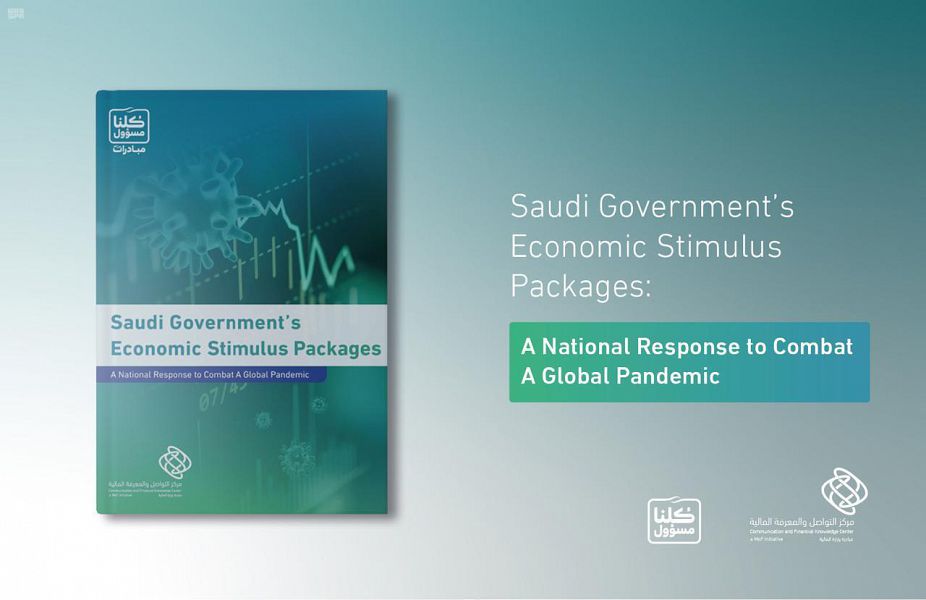
The financial authorities of the two largest economies in the Arabian Gulf — Saudi Arabia and the UAE — have taken commendably rapid action in a bid to head off the economic hit from the coronavirus outbreak.
Over the past few days, the Saudi Arabian Monetary Authority and the UAE Central Bank have announced stimulus packages worth a combined $40 billion to counter the economic damage that will inevitably follow from escalating levels of infection in the region and in the world.
Although it was not specifically part of either announcement, the two authorities must also have their eye on the economic fallout from the recent falls in the oil price. Those are bound to add to economic volatility in both countries, and have financial consequences — for individuals, companies and treasuries — that are rightly top of the central bankers’ priorities.
In Saudi Arabia, a SR50 billion package was aimed at small and medium enterprises (SMEs), to grant them temporary deferrals on bank payment and other forms of credit financing. The SME sector has been one of the main focuses of the Vision 2030 strategy that seeks to diversify the economy away from oil dependency.
SME’s are growing in their importance in the Kingdom, but are still in relative infancy and need that kind of protection.
Analysts regard them as essential to boost the non-oil areas of the economy.
The banking and financial systems of Saudi Arabia and the UAE remain strong, and should be resilient enough to withstand the economic recession that now looks unstoppable.
Frank Kane
The UAE went a step further, with an AED50 billion package to provide zero-interest loans to banks, and a further AED50 billion worth of leeway in their capital requirements, which should enable the banks to be indulgent to retail and business customers who might face financial hardship in the next few months.
It is worth seeing the Gulf actions as part of a global reaction to the threat posed by coronavirus.
The Federal Reserve in the US, the European Central Bank and the People’s Bank of China have all taken similar steps to inject liquidity into their systems and ease borrowing conditions for companies whose business and financial lines have been disrupted in recent weeks.
Will those actions be enough to counter a threat that has been increasing by the day? Western markets seemed to give a positive response at the end of last week, with the main share indicators rising — after an admittedly horrible week of falls — when the packages were announced. We will be in a better position to judge when European and American markets open after the weekend.
In the Gulf, perhaps because of the additional problem of lower oil revenues and its effect on government spending, Sunday’s reaction was less conclusive. The Tadawul, the Abu Dhabi Securities Market Index, and the Dubai Financial Market were all down.
The Dubai benchmarks were hardest hit, down more than 3 percent, perhaps reflecting the emirate’s position as the leading tourism and travel hub in the region at a time when flights are being canceled, visitor numbers restricted and tourist attractions mothballed.
The UAE had previously announced an even bigger tranche of measures — fee and levy reductions, cuts in customs charges and utilities charges — to address the travel and retail sectors of the country.
But there is a difference between the economic fallout that seems inevitable from a shrinking global economy, and the financial repercussions as reflected in the money markets. The banking and financial systems of Saudi Arabia and the UAE remain strong, and should be resilient enough to withstand the economic recession that now looks unstoppable.
It seems certain that regional and global financial markets will have several stressful periods in the weeks ahead, and that further stimulus packages will be required to help them over those bad patches.
The need is for policymakers to be adaptable, and to keep resources in store to fight the inevitable fires that will break out in regional economies. The recent stimulus packages were a sign that the financial authorities are aware of the risks, and have the tools and skills at their disposal to keep heading them off.
• Frank Kane is an award-winning business journalist based in Dubai.
Disclaimer: Views expressed by writers in this section are their own and do not necessarily reflect Arab News" point-of-view










